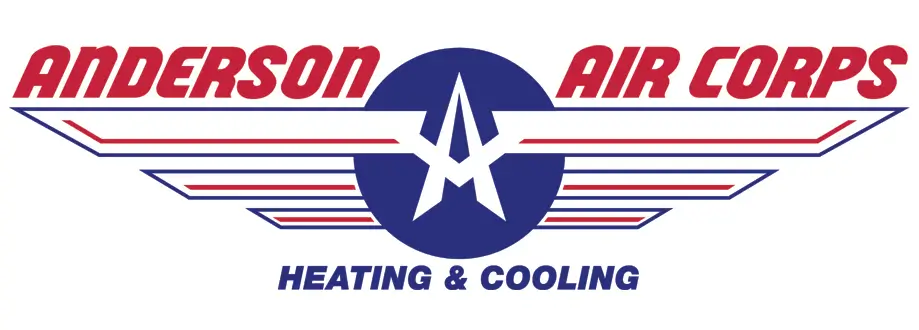Introduction
Wildfire season isn’t just a problem for people living near the flames—it’s an air quality crisis that can reach hundreds of miles away. The smoke carries fine particles, chemicals, and gases that infiltrate homes, threatening respiratory health, aggravating allergies, and even impacting long-term wellbeing. The good news? Your HVAC system can be your home’s first line of defense—if it’s properly equipped and maintained.
In this guide, we’ll break down exactly how wildfire smoke affects indoor air quality, what that means for your health, and how to use your HVAC system to keep the air inside your home clean and breathable.
Jump to:
- TLDR – Quick Guide
- How Wildfire Smoke Affects Indoor Air Quality
- Detailed Breakdown
- Key Takeaways
- FAQs
- 1. Can wildfire smoke really get inside my home if the windows are closed?
- 2. What’s the best type of filter for wildfire smoke?
- 3. Should I run my air conditioner during wildfire season?
- 4. How often should I replace HVAC filters during wildfire season?
- 5. Are portable air purifiers as effective as HVAC-based solutions?
TLDR – Quick Guide
- Wildfire smoke contains tiny particles (PM2.5) that easily enter homes.
- Health risks include breathing difficulties, worsened asthma, and heart problems.
- Your HVAC can filter smoke particles—if you use high-quality filters and keep the system sealed and serviced.
- Upgrades like HEPA filtration, UV lights, and whole-house air purifiers can make a big difference.
How Wildfire Smoke Affects Indoor Air Quality
1. What’s in Wildfire Smoke?
Wildfire smoke is a complex mix of fine particulate matter (PM2.5), carbon monoxide, volatile organic compounds (VOCs), and other pollutants. PM2.5 is especially dangerous—it’s so small that it bypasses your body’s natural defenses and enters deep into your lungs.
2. How Smoke Enters Your Home
Even with windows and doors shut, smoke particles infiltrate through small cracks, unsealed ducts, and ventilation systems. If your HVAC isn’t equipped with proper filtration, those particles can circulate throughout your home.
3. Why Indoor Exposure Is Worse
Indoor air can sometimes be more polluted than outdoor air during wildfire events because contaminants get trapped inside. Without active filtration, these particles can accumulate, increasing your exposure over time.
Detailed Breakdown
Upgrade to High-Efficiency Filters
- Use filters rated MERV 13 or higher to capture fine particles like PM2.5.
- Replace filters more frequently during wildfire season—sometimes every 30 days.
Seal and Maintain Your Ductwork
- Leaky ducts can pull in smoky outdoor air from attics or crawl spaces.
- Have your ducts inspected and sealed to keep contaminants out.
Use the HVAC Fan Strategically
- Running the fan continuously during smoke events allows the filter to keep cleaning the air.
- Set your system to “recirculate” to avoid pulling in outdoor air.
Add Advanced Air Purification
- HEPA filters trap even smaller particles.
- UV-C lights can help reduce microbial growth in the system.
- Whole-house air purifiers integrate directly into your HVAC for maximum coverage.
Maintain Indoor Humidity Levels
- Keep humidity between 30–50%—too dry and particles linger longer; too humid and mold risk rises.
- Your HVAC’s humidification controls can help maintain that sweet spot.
Key Takeaways
- Wildfire smoke is a serious indoor air quality hazard—even miles from the fire.
- Your HVAC system can dramatically reduce exposure with proper filtration and maintenance.
- Investing in high-quality filters, sealing your ducts, and adding purification tech can turn your home into a safe haven during wildfire season.
FAQs
1. Can wildfire smoke really get inside my home if the windows are closed?
Yes. Smoke particles are extremely small and can seep in through gaps, cracks, and even your HVAC system if it’s not properly sealed or filtered.
2. What’s the best type of filter for wildfire smoke?
A MERV 13 or higher filter is recommended because it can capture fine particulate matter like PM2.5, which is the most harmful component of wildfire smoke.
3. Should I run my air conditioner during wildfire season?
Yes, but set it to recirculate indoor air rather than bringing in outdoor air. This allows your filter to keep cleaning the same air instead of introducing more smoke.
4. How often should I replace HVAC filters during wildfire season?
You may need to replace filters every 30 days or sooner, depending on smoke levels and filter type. A clogged filter won’t effectively trap particles.
5. Are portable air purifiers as effective as HVAC-based solutions?
Portable units can help in single rooms, but a whole-house HVAC filtration or purification system ensures every space in your home gets clean air.
